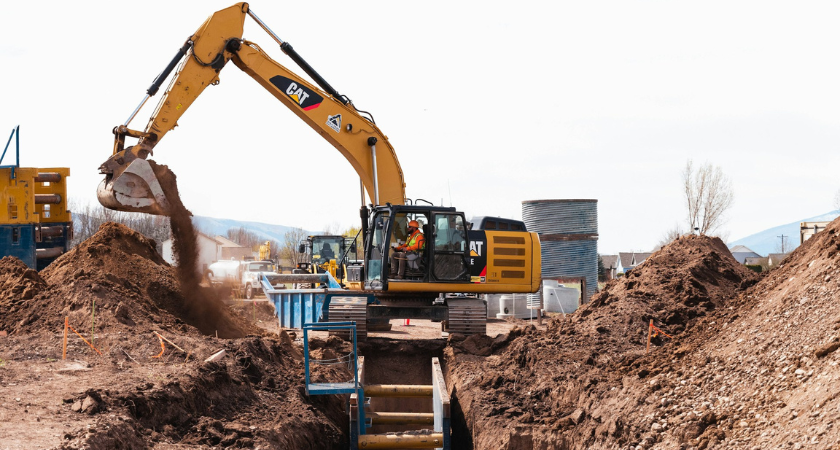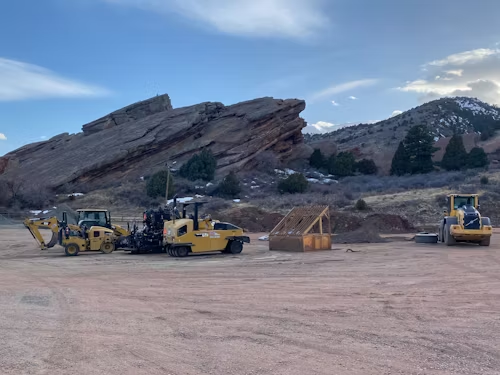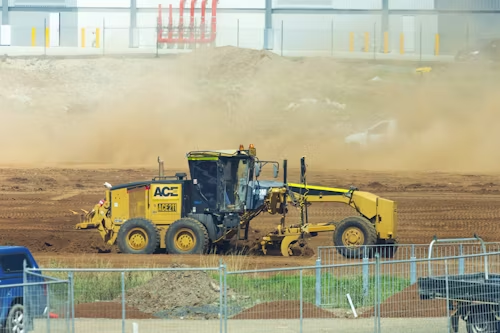
GOLDEN, Colo. — A major construction project in downtown Golden is not only reshaping the city’s landscape but also unearthing hidden chapters of Colorado’s industrial past.

The 14-acre site, once home to CoorsTek’s longstanding manufacturing operations, is being transformed into Clayworks, a mixed-use district that will feature offices, retail, housing, and serve as the new headquarters for CoorsTek. As crews dig foundations and lay out new streets, they are also discovering remnants of Golden’s manufacturing history—artifacts that date back more than a century.
“We’re known for beer, but we’ve also had the ceramics almost as long as our beer company,” said Darden Coors, interim president of AC Development and a member of the Coors family. “This (site) has been a lot of things over a lot of years. As we’ve been digging new foundations and clearing sites, new sidewalks – we’ve found a lot of artifacts from every decade of the history of this site. It’s been awesome to save it, document it, and add to our history of all our artifacts from 100+ years here.”
Among the discoveries are fragments of dinnerware, labware, and porcelain malted milk containers—objects that reflect CoorsTek’s ability to adapt to changing times. Founded as the Coors Porcelain Company in the early 1900s, the business originally produced household ceramics and laboratory equipment before expanding into advanced materials for aerospace, defense, transportation, and electronics.
Archivist and historian Melanie Keerins has been cataloging and preserving the artifacts. “I can walk around with a little bucket and pick up everything I find,” she said. “I love it. My background was in archeology before I became an archivist. This is my favorite part of my job these days.”

Keerins explained that these finds reveal the company’s history of resilience and reinvention. During World War I, when German imports of laboratory glassware were cut off, the U.S. turned to domestic companies. “The U.S. government said, hey do we have any companies that will produce labware here in the U.S. We said sure! And 20 years later, we were 90% of the domestic labware market,” Keerins noted.
The Prohibition era brought another pivot. “The brewery, during Prohibition, they couldn’t make beer,” she said. “One of the things they made was malted milk. And malted milk went into candy stores and soda shops and (Coors Porcelain Co./CoorsTek) made the containers for malted milk here, out of porcelain.”
Those porcelain malted milk containers, along with fragments of Coors’ iconic “Rosebud” dinnerware, are now being pulled from the dirt. “Everybody that lives in this area, grew up in this area, knows about Rosebud pottery,” Keerins added.
For Golden residents and the Coors family, the finds are more than curiosities—they are tangible connections to community heritage. “We always talk about, here in the U.S., we don’t have history. This is proof positive we do. It’s history that’s tangible, not just words on a page,” Keerins said. “And that history is about people. It’s about the Coors family. It’s about the thousands of employees that made these products over these years and part of this story. And it's part of Golden.”
The Clayworks project is expected to bring modern growth and economic opportunities to Golden, but thanks to the artifacts being uncovered, it is also serving as a reminder that new development can coexist with preserving the stories of the past.
Originally reported by Jennifer Meckles in 9 News.